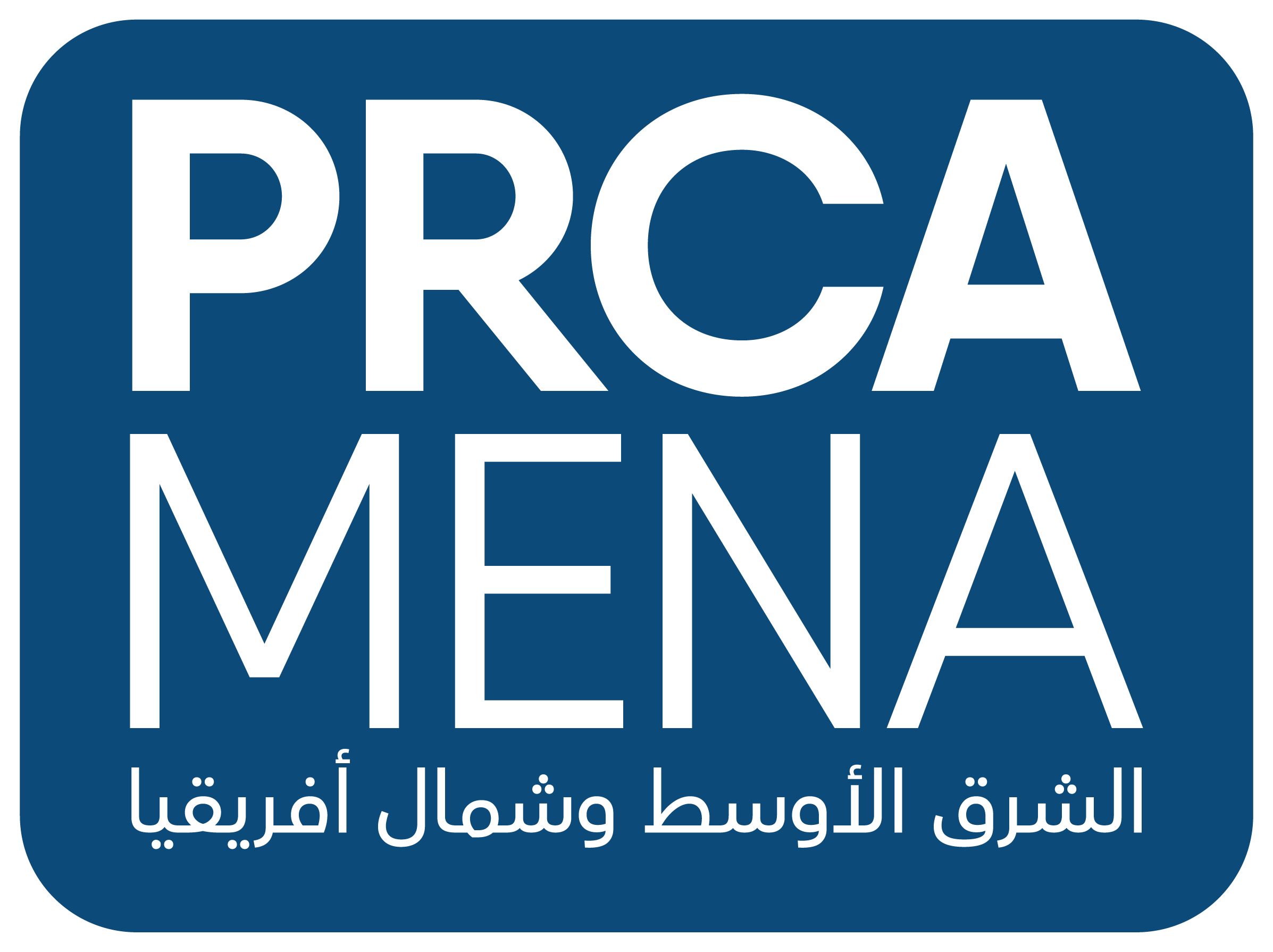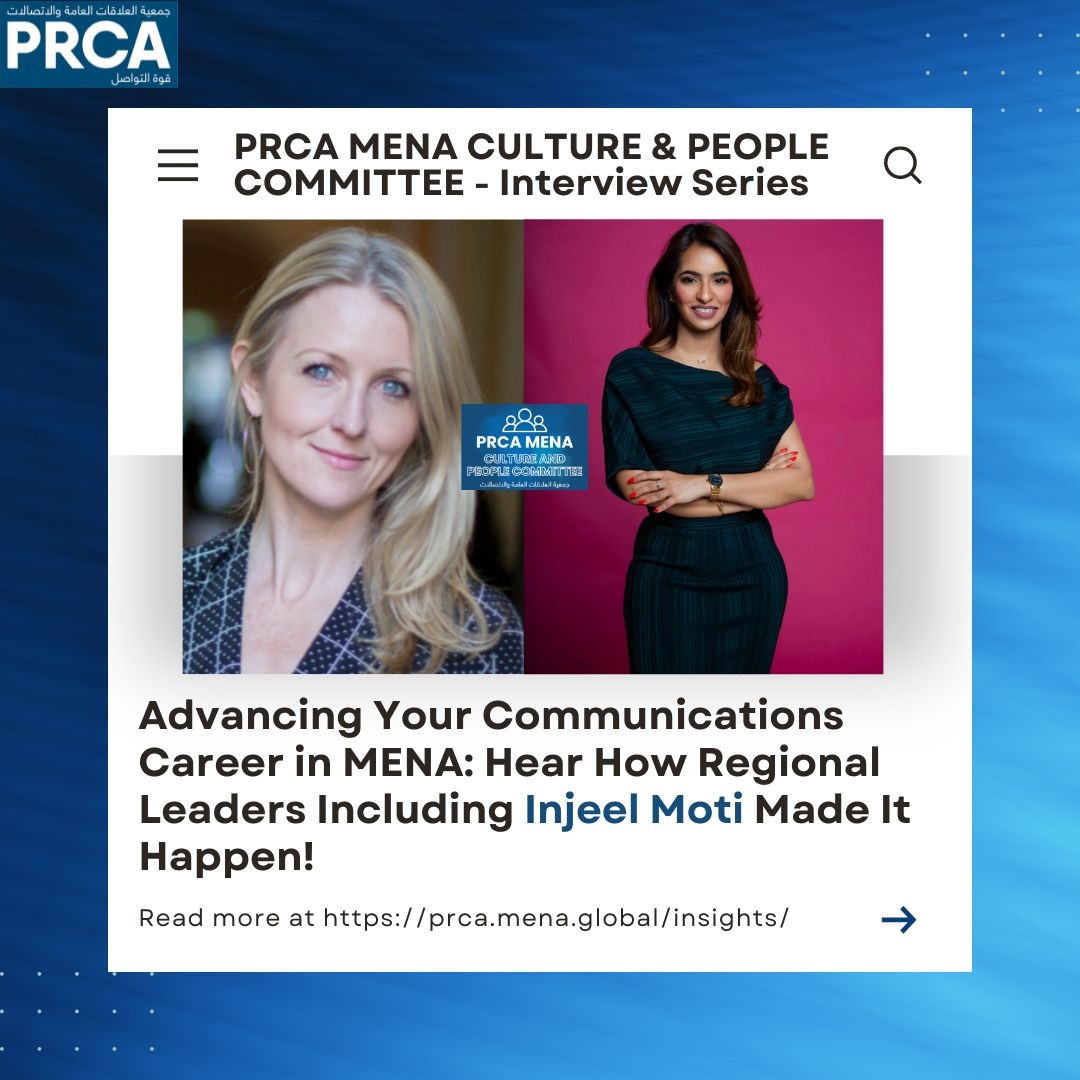Advancing Your Communications Career in MENA: Hear How Regional Leaders Like Injeel Moti Made It Happen!
Alice Weightman, Chair of the PRCA MENA People and Culture committee sat down with senior leaders of the communications industry and the committee members of PRCA MENA to share insights from their impressive careers, offering guidance on how to get ahead in the ever-changing communications field.
Today, we’ll hear from Injeel Moti, Managing Director at Catch Communications, who will share their journey to success and offer some invaluable career advice.
What drove you to forge a career in communications?
It was a combination of my passion for storytelling and my desire to make a meaningful impact through effective and strategic communication. From a young age, I was drawn to writing and creative expression, finding joy in crafting narratives that could captivate and inform an audience. As I grew older, I became increasingly fascinated by the power of media and technology to shape public perception and drive societal change. The dynamic nature of the communications field, with its constant evolution and the integration of new media, means that no two days are ever the same, and the learning is constant.
What do you think are the key qualities needed to succeed in communications, and how do you assess these attributes when interviewing prospective candidates?
Creativity, the ability to think strategically, adaptability and strong interpersonal skills are all equally important to define success in the communications space. We assess candidates based on their motivations, communication skills across written and spoken, their ability to solve problems through a series of assessments, reference checks, portfolio reviews & situational questions in person.
What is the biggest challenge you’ve overcome during your career? What lessons did you learn from this experience that you believe are valuable for others facing similar obstacles?
I got into business for myself fairly young, having had little to no management experience, which made managing people and teams quite challenging, particularly around periods of change such as organisational restructuring or the adoption of new technologies, which is very frequent in younger businesses.
What has worked for us as a business is fostering open, transparent, and frequent communication and using various channels to ensure everyone is informed and engaged with what is happening at all times.
How have mentorship and professional networking impacted your personal growth, and what guidance would you offer to junior professionals around this?
Networking has had a significant impact on my personal growth and that of the business. A lot of the leads we are able to generate come through the network. That, coupled with personal branding, sharing wins, and highlighting the work we do for our clients in the region, has been very helpful.
Mentorship has played a very important role in my personal journey and is something I stand by. A lot of the problems we might be facing seem larger than they are, and just having a conversation with someone can help resolve that very quickly. There is a lot of value that comes from learning from the experiences of others; therefore, making time to have those chats regularly is crucial as you grow in your career.
How do you prioritise self-care and wellbeing amidst demanding work schedules, and what advice would you offer to junior professionals on achieving balance in their lives?
What has worked for me is setting clear boundaries between work and personal time. This means having a definitive end to my workday, avoiding work emails during personal time, and taking breaks throughout the day to recharge.
Just as I schedule meetings and work tasks, I also schedule time for exercise, hobbies, and relaxation. This ensures that I make time for activities that rejuvenate me and reduce stress. Running a business single-handedly takes a lot out of you; therefore, having some semblance of balance is key.
What advice do you have for junior professionals on embracing change in the evolving PR landscape?
The communications landscape is constantly evolving with new tools, trends, and technologies. Stay informed by reading industry news, following thought leaders, and participating in professional development opportunities. Continuous learning will help you stay ahead and adapt to changes quickly.
Approach change with a growth mindset, viewing challenges as opportunities for learning and improvement. Be open to feedback, experiment with new ideas, and continuously seek ways to enhance your skills and knowledge.
Lastly, what career advice would you give to PR professionals about setting long-term career goals in the MENA region?
Develop the ability to adapt quickly to new situations. Whether it’s a shift in client expectations, a crisis, or a new communication channel, being flexible and open to change will help you navigate the evolving landscape effectively.




